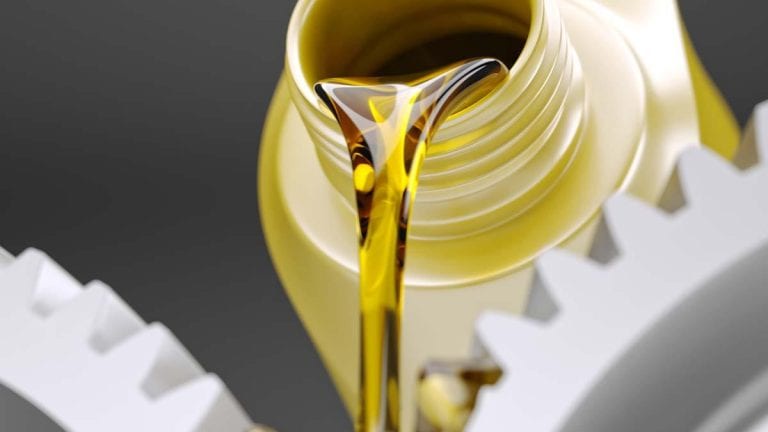Hydraulic systems are the backbone of numerous industrial applications, from construction machinery to manufacturing equipment. At the heart of these systems lies hydraulic oil, a vital fluid that facilitates the transfer of power, lubricates moving parts, and dissipates heat. Choosing the right hydraulic oil is crucial for maintaining the efficiency, reliability, and longevity of hydraulic systems.
In this comprehensive guide, we'll delve into the intricacies of hydraulic oils, explore the various types available, and provide practical insights on how to select the optimal oil for your equipment needs.
Understanding Hydraulic Systems
Hydraulic systems operate on the principle of transmitting force through the use of a pressurised fluid. These systems typically consist of a hydraulic pump, valves, cylinders, and hydraulic fluid. When the pump pressurises the hydraulic fluid, it creates a force that can be used to perform work, such as lifting heavy loads or moving machinery components.
Hydraulic fluids play a critical role in lubricating moving parts, preventing wear and tear, and transferring heat away from critical components.

Types of Hydraulic Oils
There are several types of hydraulic oils available, each with its own set of characteristics and applications.
1. Mineral Hydraulic Oils: Mineral hydraulic oils, also known as petroleum-based oils, are derived from refined crude oil. They are cost-effective and offer good lubrication properties. However, they may degrade more quickly under high temperatures and are less resistant to oxidation compared to synthetic oils.
2. Synthetic Hydraulic Oils: Synthetic hydraulic oils are manufactured using chemically synthesised base oils. They exhibit superior thermal stability, oxidation resistance, and extended service life compared to mineral oils. Synthetic oils are ideal for applications subjected to extreme temperatures, high pressures, or demanding operating conditions. They also provide enhanced lubrication, reducing wear and extending component life.
3. Biodegradable Hydraulic Oils: Biodegradable hydraulic oils are formulated to minimise environmental impact. They are typically derived from vegetable oils or synthetic esters. These oils offer excellent biodegradability and are less harmful to ecosystems in case of leaks or spills. However, they may have slightly lower performance in extreme conditions compared to mineral or synthetic oils.
4. Fire-Resistant Hydraulic Fluids: In applications where fire hazards are a concern, such as steel mills or foundries, fire-resistant hydraulic fluids are essential. These fluids are formulated to resist ignition and minimise the risk of fire in the event of a leak. Common types include water-glycol, phosphate ester, and diester fluids. While offering fire resistance, these fluids may have different performance characteristics and compatibility requirements compared to conventional hydraulic oils.
5. ISO Viscosity Grades: Hydraulic oils are classified based on their viscosity grades according to the International Standards Organization (ISO). Common viscosity grades include ISO VG 32, ISO VG 46, and ISO VG 68. The viscosity grade determines the oil's flow characteristics and suitability for specific applications, with lower viscosity grades typically used in colder environments and higher grades in warmer conditions.
Factors to Consider When Choosing Hydraulic Oil
When selecting hydraulic oil for your equipment, there are several factors to take into consideration:
1. Viscosity Grade:
- Viscosity is a critical parameter that determines the oil's flow characteristics and its ability to lubricate components effectively.
- Consider the operating temperature range of your hydraulic system. Choose a viscosity grade that provides adequate lubrication across the temperature spectrum.
- Common viscosity grades include ISO VG 32, 46, and 68, with higher numbers indicating thicker oils suitable for higher temperatures and heavier loads.
2. Additive Package:
- Hydraulic oils often contain additives to enhance their performance and protect against wear, corrosion, and oxidation.
- Look for oils with anti-wear additives, rust inhibitors, and anti-foaming agents to ensure optimal system protection and smooth operation.
- Consider specific additives tailored to your application's requirements, such as extreme pressure (EP) additives for systems subjected to high pressure or shock loads.
3. Compatibility:
- Ensure compatibility between the hydraulic oil and system components, including seals, hoses, and other materials.
- Check manufacturer recommendations and specifications to avoid potential issues such as seal degradation or fluid leakage.
- Synthetic hydraulic oils may offer better compatibility with a wider range of materials and improved performance in extreme conditions compared to conventional mineral oils.
4. Environmental Factors:
- Consider environmental regulations and guidelines when selecting hydraulic oil, especially in sensitive or regulated environments.
- Choose biodegradable or environmentally friendly options where applicable to minimise ecological impact and comply with regulations.
- Synthetic ester-based hydraulic oils are known for their biodegradability and low toxicity, making them suitable for environmentally sensitive applications.
5. Performance Requirements:
- Evaluate the specific performance requirements of your hydraulic system, such as load capacity, speed, and operating conditions.
- Select hydraulic oil with the appropriate additives and properties to meet these requirements and ensure reliable performance.
- Conduct thorough testing and analysis, including oil analysis and performance monitoring, to verify compatibility and effectiveness.
6. Manufacturer Recommendations:
- Refer to the equipment manufacturer's guidelines and specifications for recommended hydraulic oil types and brands.
- Adhering to manufacturer recommendations ensures warranty compliance and optimal system performance.
- Consult with knowledgeable professionals or technical experts for assistance in selecting the most suitable hydraulic oil for your application.
Key Properties to Evaluate
When evaluating hydraulic oils, there are several key properties to consider:
- Viscosity: The viscosity of the hydraulic oil determines its flow characteristics and lubricating ability. Select an oil with the appropriate viscosity grade for your operating temperature range.
- Oxidation stability: Hydraulic oils are subjected to high temperatures and pressures, which can lead to oxidation and degradation over time. Choose an oil with good oxidation stability to maintain fluid integrity and extend service life.
- Wear protection: Look for hydraulic oils that contain additives to provide wear protection and extend the life of hydraulic system components.
- Foam resistance: Foaming can impair hydraulic system performance and cause damage to components. Select oils with anti-foaming additives to prevent foaming and ensure smooth operation.
- Water separation: Hydraulic systems may be exposed to moisture, which can lead to water contamination and reduced fluid performance. Choose oils with good water separation properties to maintain system cleanliness and prevent corrosion.
Testing and Evaluation
Before selecting a hydraulic oil for your equipment, it's important to conduct thorough testing and evaluation to ensure compatibility and performance. Industry-standard tests can be used to assess factors such as viscosity, oxidation stability, and wear protection.
Additionally, conducting bench tests and field trials can provide valuable insights into how the oil performs in real-world operating conditions. Consulting with experts and suppliers can also help you make informed decisions and find the right hydraulic oil for your specific application.
Maintenance and Monitoring
Once you've selected the appropriate hydraulic oil for your equipment, it's essential to establish a regular maintenance and monitoring routine. Regular oil analysis can help detect potential issues such as contamination, degradation, or wear, allowing you to take corrective action before serious damage occurs.
Establishing a maintenance schedule for oil replacement and system servicing can help prolong equipment life and minimise downtime. Proper storage and handling practices should also be followed to maintain oil integrity and performance.
Conclusion
Choosing the right hydraulic oil is essential for maintaining the efficiency, reliability, and longevity of your equipment. By considering factors such as equipment specifications, operating conditions, and application requirements, you can select the optimal oil for your needs.
Regular maintenance and monitoring are key to ensuring proper fluid performance and preventing costly downtime. By following the guidelines outlined in this guide, you can make informed decisions and ensure the continued success of your hydraulic systems.


No comments yet